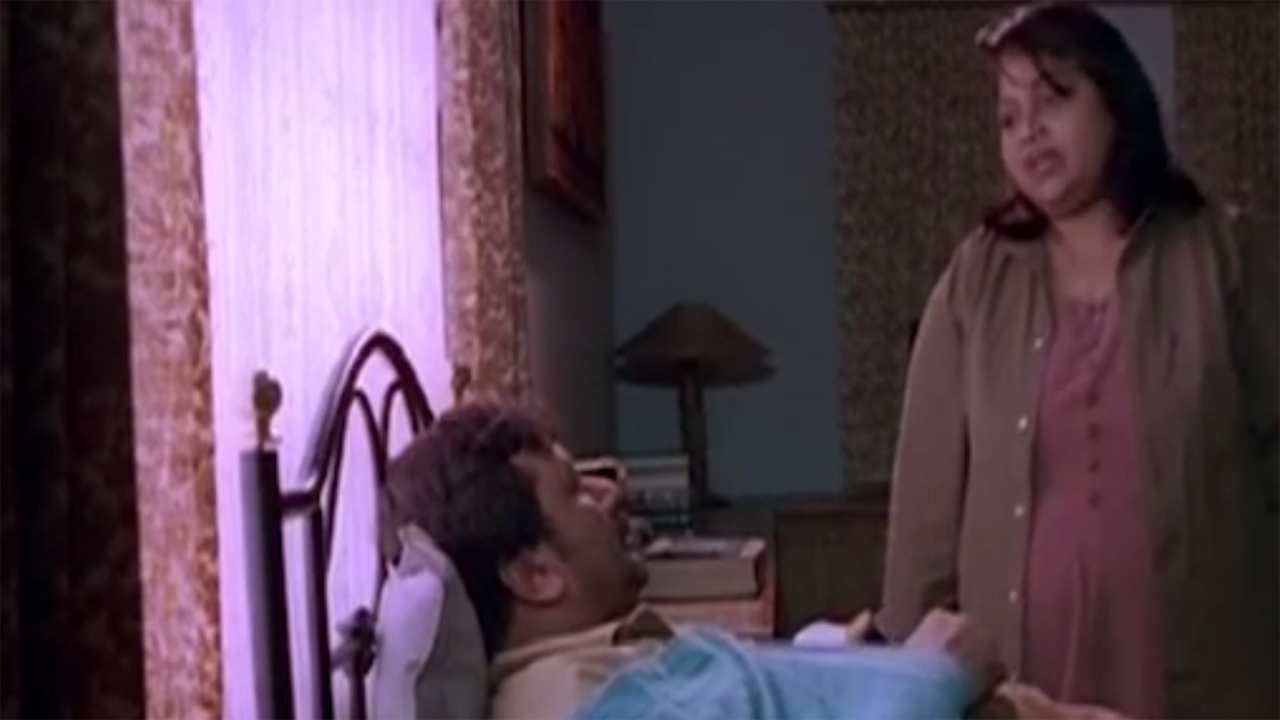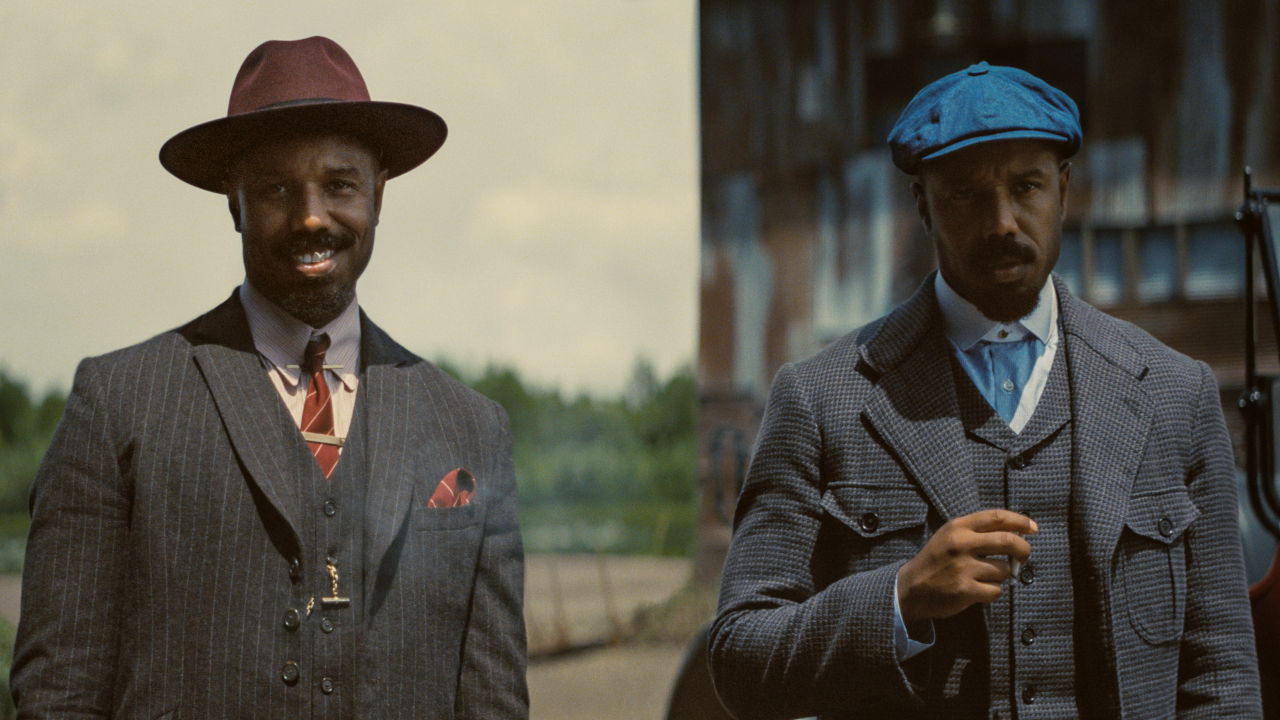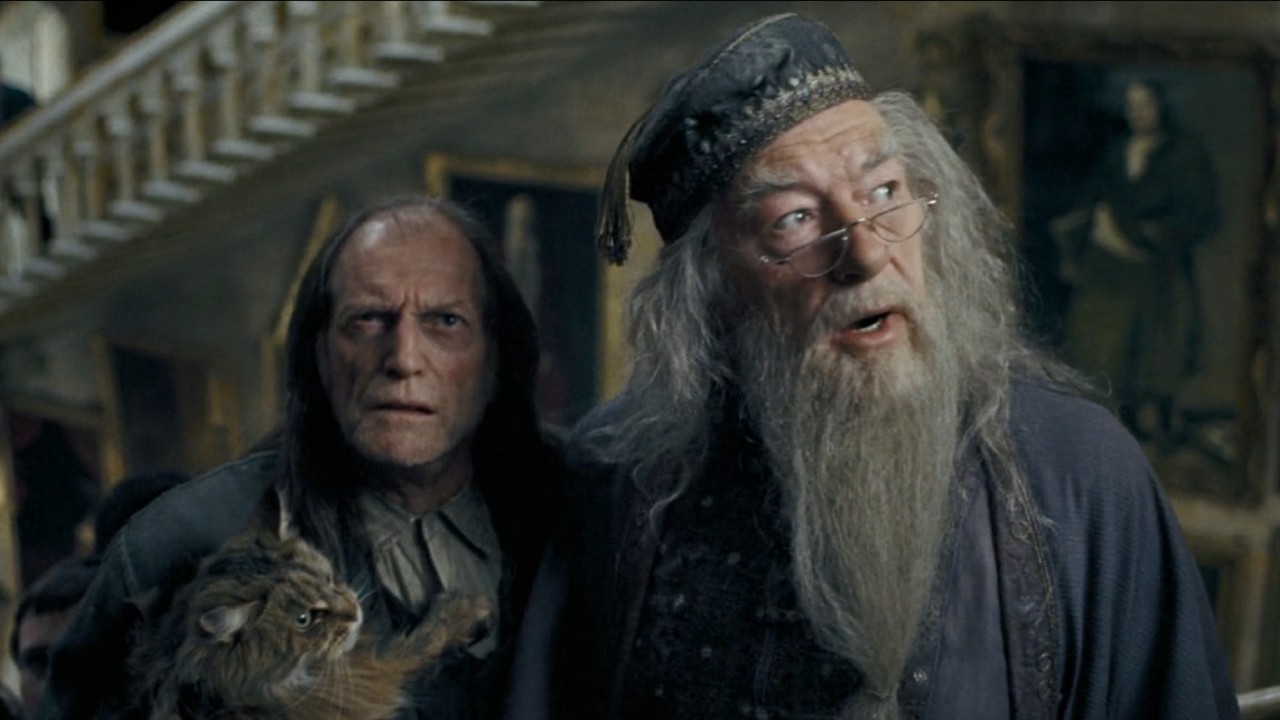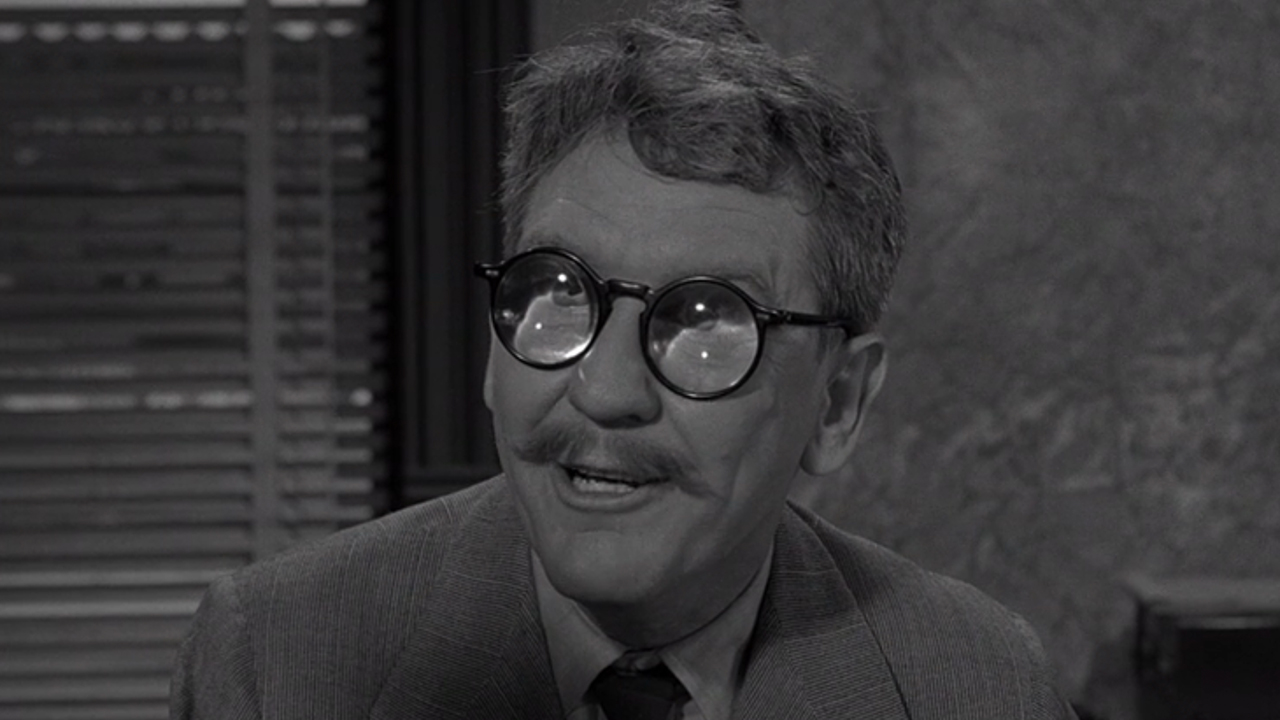Adapting Stephen King's Misery: 2003’s Julie Ganapathi Is A Musical Remake You Probably Didn’t Know Existed
The first foreign-language adaptation of a Stephen King book.

Reflecting on Stephen King’s body of work, one notes that he certainly has a propensity for keeping his storytelling domestic. He has crafted narratives that take place abroad (the short story “Crouch End” comes to mind), and there are some that are set beyond the stars or on another plane of existence, but the vast majority of his writing focuses on American characters living traditional American lives. No creative has done more to give the state of Maine prominence in pop culture, but his books take Constant Readers to New York, Nebraska, Texas, Ohio, Florida, California and everywhere in between.
Of course, just because Stephen King’s stories primarily take place in the United States doesn’t mean they don’t have spectacular international appeal. People all around the world love to be scared, and the author’s work transcends language and culture. According to the United Nations Educational, Scientific, and Cultural Organization, King ranks in the Top 10 of most translated individual authors (the only American other than Danielle Steel), and movies based on his novels, novellas, and short stories have grossed over $1 billion overseas.
In the early aughts, that global appeal translated to the first ever non-English language adaptation of a Stephen King book. Per an interview with Rediff, Sri Lankan born Indian filmmaker Balu Mahendra was looking for a project to make after a brief hiatus from feature filmmaking, and found himself drawn to the great 1987 novel Misery, which was translated into Tamil. His appreciation of the intense and intimate thriller about an author held prisoner by one of his fans inspired him to bring it to the big screen, writing and directing Julie Ganapathi – which premiered in India on February 1, 2003.
It’s an odd entry for this column, both because it has a strange relationship with Rob Reiner’s 1990 adaptation of Misery, and because it happens to be a movie never distributed with English subtitles. All the same, it meets the qualifications for examination, so let’s dig into this week’s Adapting Stephen King.

How Balu Mahendra's Julie Ganapathi Differs From Rob Reiner’s Misery
As I noted in my column at the end of last September, Rob Reiner’s Misery is not just one of the greatest Stephen King adaptations ever made, but one of cinematic history’s best thrillers. It makes key changes to the source material, even going as far as to add an extra plotline, but it’s a perfect interpretation of the novel, and the performances by Kathy Bates, James Caan, and Richard Farnsworth are legendary.
All that put firmly in mind, this would typically be the place where I explain that Balu Mahendra's Julie Ganapathi had a great deal to live up to in reinterpreting the book… but the situation is a bit odder than that. This is because Mahendra insisted that he never watched Rob Reiner’s movie prior to making his own adaptation, despite the fact that many of the changes that the remake makes to the source material are identical to those first featured in screenwriter William Goldman’s Misery script.
In the aforementioned Rediff interview, Balu Mahendra insists multiple times that Julie Ganapathi is “not based on any Hollywood film,” explaining,
CINEMABLEND NEWSLETTER
Your Daily Blend of Entertainment News
I have not seen the film mentioned by you. It is based on the Tamil translation of an English novel by Esthoppan that I read long ago… I only read the Tamil translation. The author's name was given as Esthoppan, which could be the Tamil name for Stephen.
Watching the 2003 film with the 1990 movie in mind, however, you become aware that something doesn’t quite add up. Not every major change made from Stephen King’s novel for the original adaptation is present, but three of the most famous ones are. This includes the sequence when the Paul Sheldon surrogate Balu (Jayaram) tries to poison the titular Annie Wilkes surrogate (Saritha) with pain meds in her wine; the hobbling scene, which is performed with a sledgehammer instead of an axe; and the shotgunning of a police officer (Amarasigamani) after he discovers Balu held captive.
Julie Ganapathi doesn’t include anything from the book that wasn’t already featured in Rob Reiner’s movie – though one thing the remake has that the original doesn’t is a pair of musical sequences. This includes a song that Julie Ganapathi sings to Balu early in her relationship with the injured captive, and a sexy dream that Balu has of his wife (Ramya Krishnan) after Julie injects him with his pre-hobbling sedative.
So what explains the extreme similarities between Julie Ganapathi and Misery, giving Balu Mahendra the benefit of the doubt and assuming that is telling the truth? My primary guess would be that the book the filmmaker read wasn’t a translation of Stephen King’s novel, but instead a translated novelization of the 1990 movie… but I have no idea if such a thing exists (and more significantly, I’m not quite sure why it would). I can’t exactly say that I found an abundance of information about the movie available online, so it exists as a mystery for now.

How Balu Mahendra's Julie Ganapathi Differs From Stephen King’s Misery
Julie Ganapathi doesn’t go back to the source material in any ways that Rob Reiner’s Misery doesn’t, but it does make some of its own significant alterations not solely limited to language and setting changes.
One difference that I’ve already alluded to is that Balu, unlike Paul Sheldon, is married, and there are scenes created that feature her learning updates about her husband’s disappearance and in grief. Both versions of the protagonist have daughters, but while Paul’s in the book is an adult, Balu’s is a young child.
The remake also makes the call to change the lead character’s profession, as he is no longer a famous novelist, but instead the creator of a popular television show called Manga. At the start of Julie Ganapathi, he spends a few days away from his family at a hotel so that he can write the final episode, though while driving home he gets caught in a terrible rainstorm (instead of a Colorado blizzard) and his car goes over a cliff and into a large body of water. Julie, who we see try to visit Balu while he’s staying at the hotel, discovers him and brings him home.
Because of the language barrier that exists, it’s hard/impossible to get into the more micro ways in which Julie Ganapathi differs from Stephen King’s Misery, though there are some that make themselves apparent through context. For example, there are a couple of scenes that take place behind the scenes of Manga, with Balu’s co-workers seemingly deciding how to proceed in his absence (though they don’t seem to make too much impact on the plot, as they disappear in the second half of the movie).
Additionally, Julie has a pet dog instead of a pig, which she names Manga, and at the start of the film she is featured having a casual conversation with a friendly older man, though he isn’t featured again following that appearance.

Is It Worthy Of The King?
Not being a person who speaks Tamil, I’m clearly at a disadvantage when it comes to critiquing Julie Ganapathi. Being familiar with Stephen King’s Misery allows general understanding of the plot’s progression, but details obviously get lost. I can’t comment on the quality of written dialogue, and by extension I can’t provide a full judgment on the performances. It’s not an ideal situation.
All that on the table, it can be said that the film is an odd and fascinating addition to the on-screen legacy of Stephen King, and a curiosity worth discovering for every die-hard fan of the author.
Generally speaking, I’m not one to praise remakes that don’t make substantial and significant changes to the original (I don’t hate Jamie Foxx’s Misery idea, for example), and Julie Ganapathi hones far too close to Rob Reiner’s movie to be seen as a particularly special take on the source material. Simultaneously, it’s a curious thing to see the minor changes that are made for the sake of cultural sensibilities (and it should be noted that it definitely feels like it’s made for an audience that has never seen the 1990 film).
It’s hard to imagine anyone has ever watched Rob Reiner’s Misery and thought, “This really needs a bouncy musical number where Annie Wilkes sings and accidentally inflicts pain to comedic effect,” but it’s a prominent part of the experience of Balu Mahendra’s movie – along with the aforementioned seductive dream sequence and a somber music video-like montage of Balu’s wife walking on the beach and eating dinner with her daughter while missing her husband. Tonally, it’s throttling, and I can’t imagine it does many favors to the drama and tension when watching the movie with a full awareness of what’s going on, but it certainly adds a unique entertainment value from an outsider perspective.
If any Tamil-speaking Stephen King fans out there are looking for a project, creating English subtitles for Julie Ganapathi could be a wonderful endeavor that would only serve to expand the movie’s audience and give it more prominent placement in the legacy of King adaptations. Being the first foreign film of its kind, it certainly deserves more attention than it presently receives.

How To Watch Balu Mahendra's Julie Ganapathi
Julie Ganapathi has never gotten a domestic home video release, and it’s not available for rental or purchase digitally – but don’t lose hope if your curiosity about this strange film is starting to overwhelm you. If you really want to watch the movie, it is currently available to stream on Amazon Prime Video with a Eros Now subscription (you can get a seven-day free trial before having to pay $4.99 per month.
For the next Adapting Stephen King, I’ll be doing a deep dive into what is arguably one of the more notorious movies based on a King book – namely director Lawrence Kasdan’s blockbuster take on the 2001 novel Dreamcatcher. You can find that bit of fun here on CinemaBlend come Wednesday, and for now you can explore previous installments of this column by clicking through the banners below.







Eric Eisenberg is the Assistant Managing Editor at CinemaBlend. After graduating Boston University and earning a bachelor’s degree in journalism, he took a part-time job as a staff writer for CinemaBlend, and after six months was offered the opportunity to move to Los Angeles and take on a newly created West Coast Editor position. Over a decade later, he's continuing to advance his interests and expertise. In addition to conducting filmmaker interviews and contributing to the news and feature content of the site, Eric also oversees the Movie Reviews section, writes the the weekend box office report (published Sundays), and is the site's resident Stephen King expert. He has two King-related columns.










